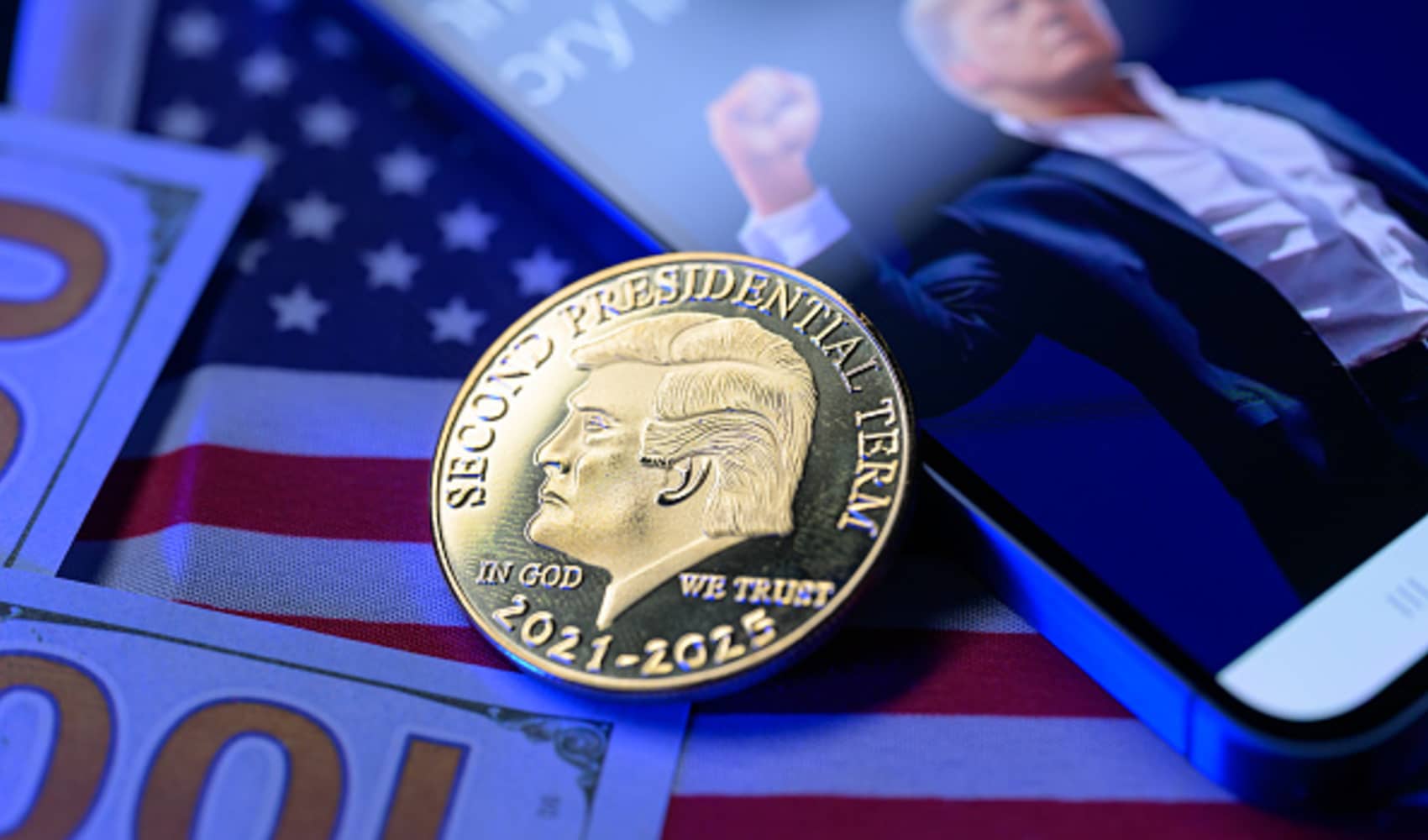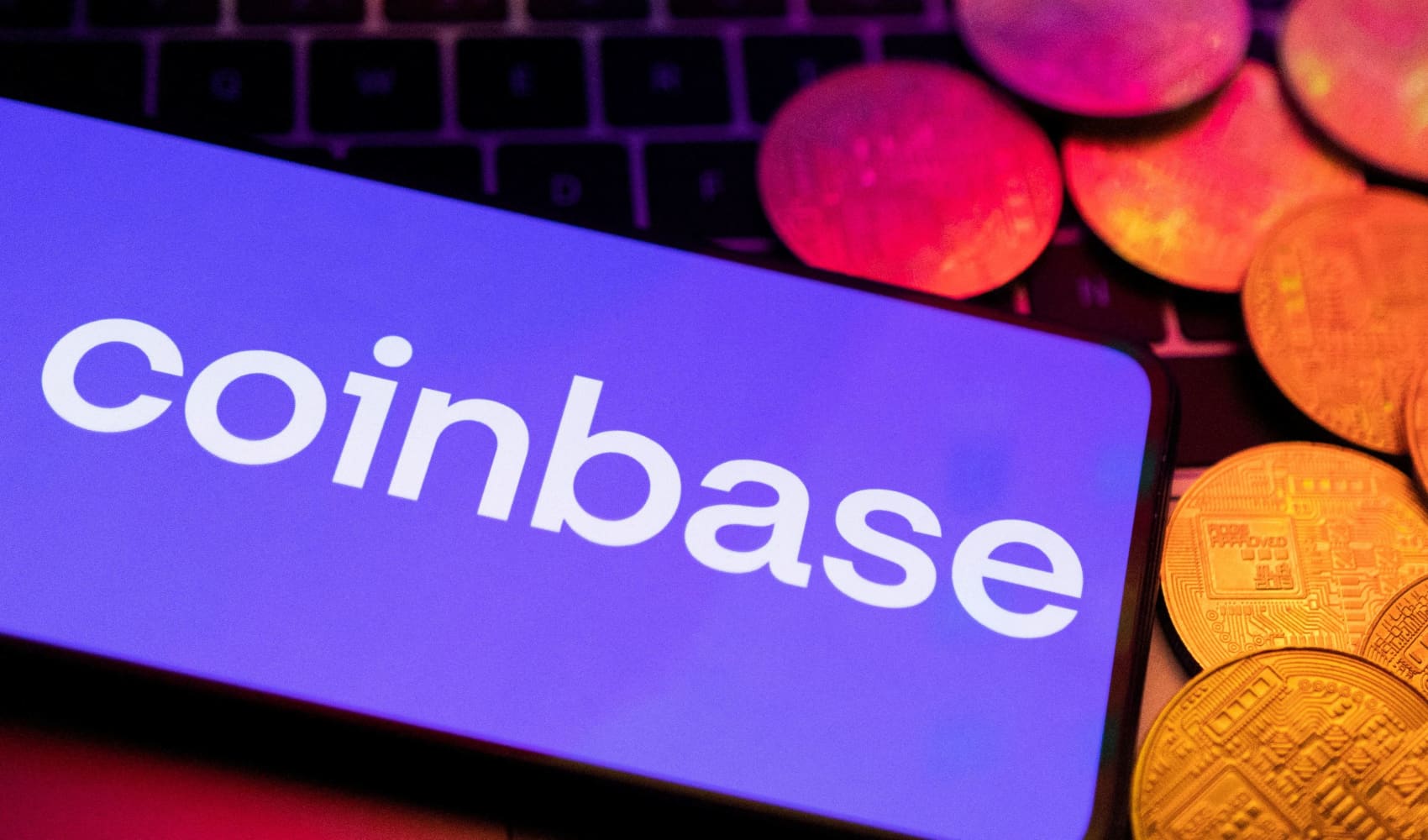SoFi Revives Crypto Investing: What Investors Need to Know
SoFi's Crypto Comeback: Investing Returns Under New Rules
Introduction: Crypto Investing at SoFi is Back!
Remember when SoFi was all about crypto investing, letting you dip your toes into the digital asset world? Well, things changed. Like a plot twist in a movie, SoFi had to put the brakes on its crypto offerings to become a regulated bank. But hold onto your hats, folks! The rollercoaster is about to climb again. SoFi CEO Anthony Noto has announced that crypto investing is making a grand return, thanks to what he calls a "fundamental shift" in the regulatory landscape. Are you excited? We definitely are!
The Hiatus: Why SoFi Pulled Back on Crypto
So, why the sudden disappearance of crypto from SoFi's platform? It all boils down to regulation. In late 2023, SoFi had to temporarily suspend its crypto investment services as part of its application for a bank charter. Think of it like a chef having to remove a key ingredient from their signature dish to get the health inspector's approval. The scrutiny on digital assets was high, and SoFi had to play by the rules to achieve its bigger goal: becoming a fully-fledged bank.
The Bank Charter Gamble
Securing a bank charter is a big deal. It opens doors to new opportunities, like offering more comprehensive financial services and building greater trust with customers. But it also comes with strict regulations and oversight. In SoFi's case, that meant temporarily sacrificing its crypto offerings to gain that coveted charter.
The Regulatory Shift: A New Dawn for Digital Assets?
Now, here's where the story gets interesting. According to Anthony Noto, a "fundamental shift" has occurred in the regulatory environment. Specifically, new guidance from the acting head of the Office of the Comptroller of the Currency (OCC) has paved the way for SoFi to re-enter the crypto market. Is this a sign that the regulatory waters are finally calming down for the crypto industry?
Understanding the OCC's Role
The Office of the Comptroller of the Currency (OCC) is a crucial regulator for banks in the United States. Its job is to ensure the safety and soundness of the national banking system. So, when the OCC provides guidance on crypto, banks listen. Noto seems to think this new guidance has created a clearer path for SoFi to offer crypto investing in a compliant and responsible manner.
SoFi's Aggressive Crypto Push: What to Expect
Noto isn't just dipping his toes back in the water; he's planning an "aggressive push" back into crypto. This suggests that SoFi isn't just going to offer a few basic crypto options; they're likely planning a comprehensive suite of crypto investment products and services. But what exactly does this mean for you, the investor?
More Crypto Coins and Tokens?
When SoFi paused its crypto offerings, customers had access to over 20 different crypto coins. Will they bring all of these back, or introduce even more? We can expect SoFi to offer a diverse range of cryptocurrencies, catering to different risk appetites and investment strategies.
Innovative Crypto Products?
Beyond just buying and selling crypto, could SoFi introduce innovative crypto products like staking, lending, or even crypto-backed loans? Given SoFi's history of innovation, it's certainly a possibility. Imagine earning interest on your crypto holdings directly through SoFi!
The Customer Impact: What it Means for You
If you were a SoFi customer who missed having access to crypto investing, this news is undoubtedly exciting. It means you'll soon be able to buy, sell, and potentially even earn interest on cryptocurrencies directly through the SoFi platform. But beyond convenience, what are the other potential benefits?
Integrated Financial Management
One of the biggest advantages of investing in crypto through SoFi is the ability to manage all your finances in one place. Imagine having your checking account, savings account, investments, and crypto holdings all neatly organized within the SoFi app. This can simplify your financial life and make it easier to track your overall portfolio performance.
Educational Resources
SoFi has always emphasized financial literacy. With the return of crypto investing, we can expect SoFi to provide educational resources to help customers understand the risks and opportunities associated with digital assets. Think of it as a crash course in crypto, designed to help you make informed investment decisions.
Potential Risks and Considerations
While the return of crypto investing to SoFi is exciting, it's important to remember that cryptocurrencies are inherently volatile and risky investments. It's crucial to understand the potential downsides before diving in.
Volatility and Market Fluctuations
The crypto market is known for its wild swings. Prices can rise and fall dramatically in a short period. It's essential to have a long-term investment horizon and be prepared for potential losses.
Regulatory Uncertainty
While the regulatory landscape may be shifting, it's still far from settled. New regulations could be introduced at any time, potentially impacting the crypto market and your investments. Stay informed and be prepared for change.
The Trump Administration's Influence: A Pro-Crypto Shift?
Noto specifically mentioned a "fundamental shift" under the Trump administration. Does this signal a more pro-crypto stance from the government? Only time will tell, but it's clear that the political climate can significantly impact the regulatory environment for digital assets. Could this be a pivotal moment for the industry, encouraging further adoption and innovation?
Competition in the Fintech Space: SoFi vs. the Rest
SoFi isn't the only fintech company offering crypto investing. Companies like Robinhood, Coinbase, and Block (formerly Square) have been in the game for years. How will SoFi differentiate itself and attract customers in this crowded market?
The SoFi Advantage: Integrated Services
SoFi's key advantage is its comprehensive suite of financial services. By offering crypto investing alongside banking, lending, and investing products, SoFi provides a one-stop-shop for its customers. This integrated approach can be a major draw for those looking to simplify their financial lives.
Beyond Investing: SoFi's Broader Crypto Ambitions
While the initial focus is on bringing back crypto investing, could SoFi have even bigger plans for digital assets? Could we see them exploring blockchain technology, stablecoins, or even NFTs in the future?
Blockchain Technology Exploration
Blockchain technology has the potential to revolutionize various industries, from finance to supply chain management. Could SoFi explore using blockchain to improve the efficiency and transparency of its services?
The Future of Fintech and Crypto: A Symbiotic Relationship?
The return of crypto investing to SoFi highlights the growing convergence between fintech and the digital asset world. As regulations become clearer and adoption increases, we can expect to see even more fintech companies embracing crypto and offering innovative products and services.
Conclusion: SoFi's Crypto Reboot - A Sign of the Times?
So, SoFi is diving back into the crypto pool, and it seems like a big deal. With a "fundamental shift" in regulations, an "aggressive push" into crypto, and the potential for innovative crypto products, it's clear that SoFi sees a bright future for digital assets. This move could signal a broader trend in the fintech industry, as more companies embrace crypto and offer integrated financial services. Whether you're a seasoned crypto investor or just curious about the space, SoFi's return to crypto investing is worth watching. It’s a potential game changer. Now, the question is: are you ready to ride the crypto wave with SoFi?
Frequently Asked Questions (FAQs)
Q1: Why did SoFi initially stop offering crypto investing?
A: SoFi temporarily suspended its crypto offerings as a condition of receiving a bank charter. This was due to heightened federal scrutiny of digital assets at the time.
Q2: What caused SoFi to change its mind and bring back crypto investing?
A: According to SoFi CEO Anthony Noto, a "fundamental shift" in the regulatory landscape, including new guidance from the Office of the Comptroller of the Currency (OCC), has paved the way for SoFi to re-enter the crypto market.
Q3: What kind of crypto products and services will SoFi offer?
A: While the specifics are still being developed, we can expect SoFi to offer a diverse range of cryptocurrencies for buying and selling. They may also introduce innovative crypto products like staking or lending in the future.
Q4: What are the potential risks of investing in crypto through SoFi?
A: Like all crypto investments, there are risks to consider. These include volatility, market fluctuations, and the possibility of regulatory changes that could impact your investments. It’s wise to conduct thorough research before investing.
Q5: How will SoFi's crypto offerings benefit its customers?
A: SoFi's integrated platform will allow customers to manage all their finances, including crypto investments, in one place. This simplifies financial management and allows users to track their overall portfolio performance more effectively. They also will likely have access to educational resources.








